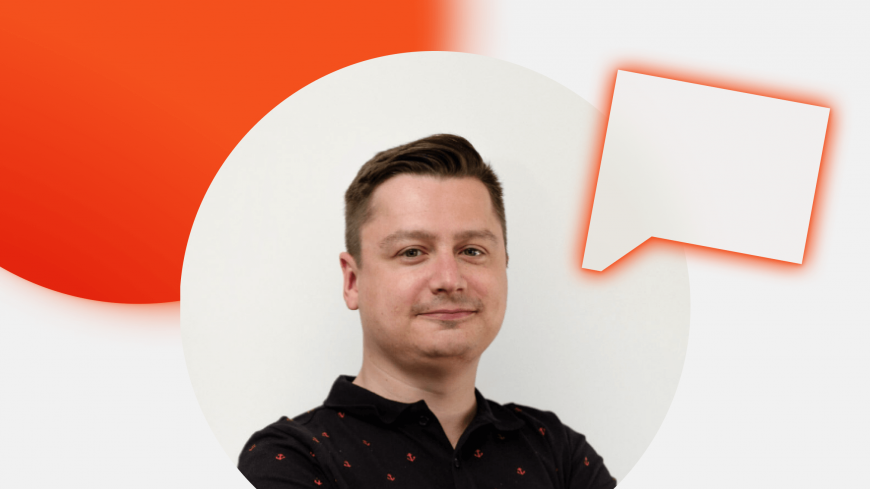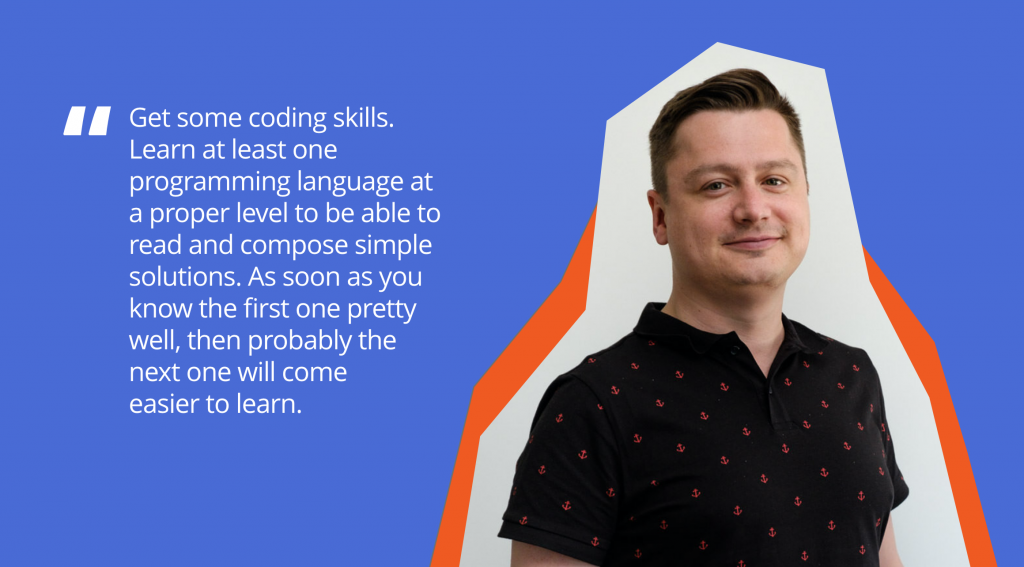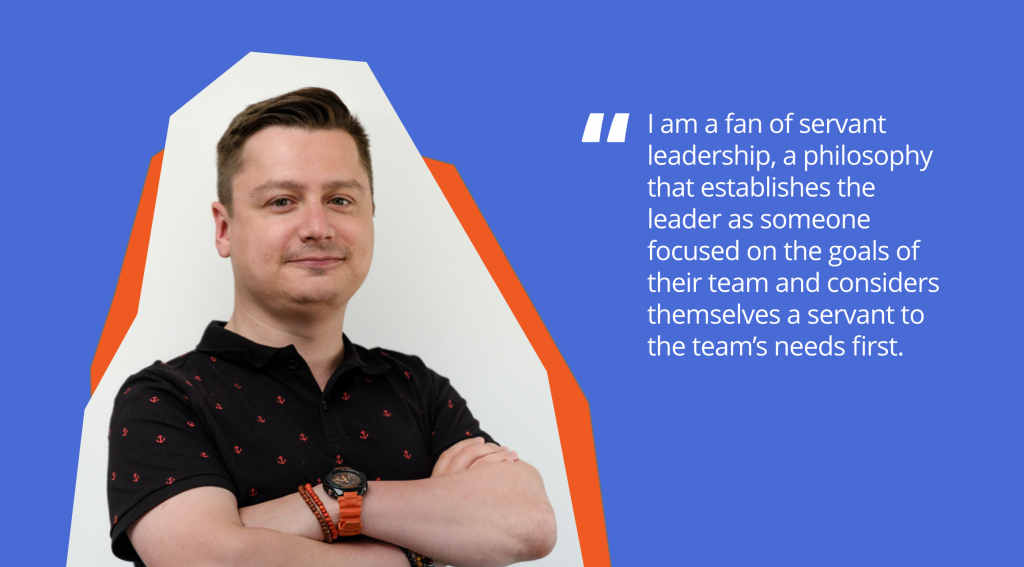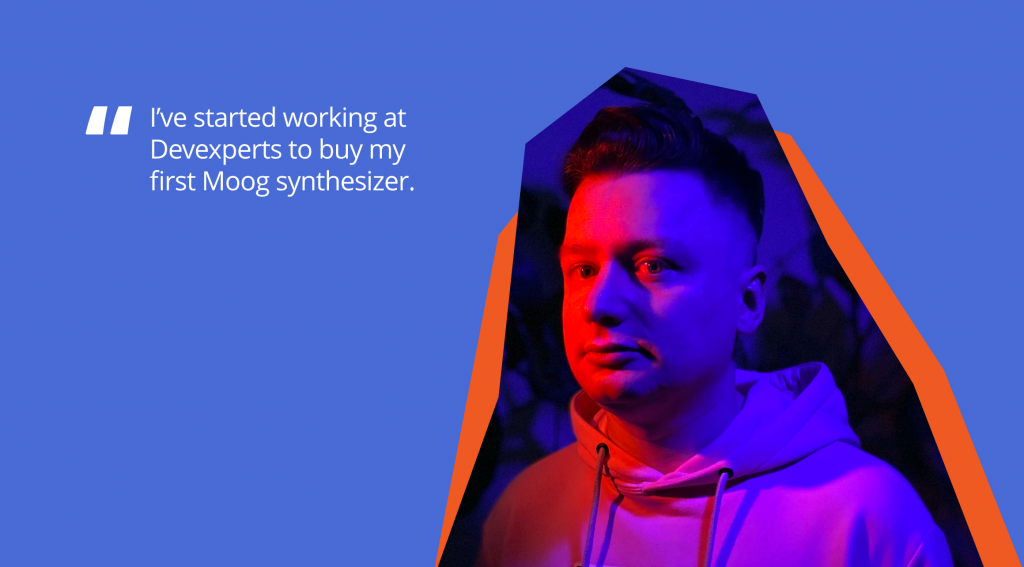Interview with Dmitry, QA Automation Lead

In our latest edition of dxSpotlight, we welcomed Dmitry, QA Automation Lead based in our Porto office. In this conversation, we explore the lessons learned working at Devexperts for more over than a decade, the philosophies and life changes that define us, and what music has to do with all of this.
You have been at Devexperts for quite a long time – 11 years, in fact. What are the main reasons for your long-lasting dedication to the company?
It’s definitely the people. We have a lot of crazy interesting people and the community we have here is incredibly supportive. If you are proactive enough, you can always find ways to evolve within the company and have fun doing it.
How would you define your path inside the company?
It was quite interesting. I would say my path within the company was not revolutionary but evolutionary. I look at it as taking one step at a time and never ceasing to be curious about the work we develop and all I am learning along the way.
What were the most important things you have learned over the years working at Devexperts?
That’s a good question. I would say the main thing I have learned is that people should be able to make mistakes. It’s one of the most important features of us as human beings to make mistakes and fix them.
It’s interesting you say that as a Quality Assurance professional, someone who is the last frontier before the product is released.
Indeed, it is! But it’s real. At Devexperts, you are allowed to make mistakes. It’s always ok to make mistakes because it’s always more important how you deal with them.

As a QA Automation Lead, what would be the most important thing you would like people to know about your job?
Automation is not a separate domain or qualification, but rather, an integral part of basically any testing. In fact, by 2021, no serious progress can be made without at least semi-automated tools. So, in the nearest future, we definitely need more knowledge sharing and synchronization among all engineering teams.
So, you think you are creating a sort of blueprint of what’s to come?
Yes, kind of. In 2021, the schedules and demands from the market for the product we are creating will be even more tight and tight for each new client that we have. So, unfortunately, or fortunately for everyone involved in testing, we will all be automating at some point in time.
If you could give a piece of advice to someone starting their career in QA, what would that be?
Get some coding skills. Learn at least one programming language at a proper level to be able to read and compose simple solutions. As soon as you know the first one pretty well, then probably the next one will come easier to learn. The same with other languages. If you know English, it will be much easier for you to later understand other languages, for example.
In the next few years, I think knowing at least one programming language will be critical if you want to start in QA.
How would you define your style of leadership?
I am a fan of servant leadership, a philosophy that establishes the leader as someone focused on the goals of their team and considers themselves a servant to the team’s needs first.
So, I am always trying to articulate that the main asset of the team is the team itself and put people first. The team leader is just a useful tool to help the team achieve their goal. So, I am fully supportive, and I try to unblock the road, so to speak. Also, I’m avoiding micromanagement at all costs due to the risk of getting in the way of the team’s work.

What strategies do you use to keep your team motivated while working from home?
I’m happy to note that for the majority of this COVID time, teams are productive no matter where they work from. It’s obvious that people’s productivity can vary from time to time, but in most cases, there are obvious reasons behind that. Some people are even more productive because now because they are able to build a more suitable schedule.
We started to have more meetings. They are shorter but they happen more often. One thing I also find very important is to celebrate work achievements amongst the team. So, when we achieve something, even if it’s small, I’m always trying to talk about it publicly within our team so that people feel a sense of accomplishment even if their immediate surroundings don’t change in any way. If you are locked at home, it’s quite easy to lose yourself and these kinds of things help everyone.
You have made quite a substantial change in your life in the past few years with the change of scenery from Russia to Portugal. What made you decide to move to Porto?
The same thing that made me go to QA and then automation and so on. My attitude in life is to think “why not?”. If I have an opportunity, why not try it?
Were there some cultural surprises that you found interesting or amusing when you first started living in Porto?
Everything seemed a little surprising to me because I had never been to Portugal before I moved. But I’m into adventures, so that’s ok. The very first time I’ve seen Porto was the day of my arrival to Porto. Everything looked like a surprise to me in a way, but nothing really like a bang. I was mostly quite surprised at how friendly the Portuguese people are. So, I’ve always felt like at home. Everyone here is very open, super welcoming and I feel it’s quite easy to live here.
You describe yourself as someone who is a fan of learning new things. What sort of things do you enjoy learning the most about?
Technology, above all. Last year I spent a lot of time learning javascript. We have a small project inside the QA department that we have developed for testing candidates. I spent plenty of time developing this project and I enjoyed it a lot because learning JavaScript was pretty fun and interesting. Working on this project also made me want to refresh my knowledge in CSS and HTML, so that was very enjoyable as well.
Other things I have learned recently: I have switched from Photoshop to Affinity, and (ok, almost) from FL to Ableton. Bought a compact mixer to do computerless music so I can now epically fail to keep the rhythm against digital machines.
There is also a very different side of you as an electronic music artist. What do you love the most about creating music?
It’s a great hobby. It’s a nice way to spend thousands of days.
I find it very enjoyable to see people enjoying the music I wrote. Sharing emotions can be an amazing thing.
Do you think this creative activity fuels your job somehow?
Well, actually, I think I’ve started working at Devexperts to buy my first Moog synthesizer. Despite that idea, the funny thing is that I ended up not buying it at the time. Eventually later on I’ve bought other musical instruments.
When it comes to how this activity influences my work, I believe I can say it’s in the process of creation itself. Creating music is all about repetition, struggling with frustration, and fighting your own laziness. That ongoing creative struggle helps with your other tasks.
It helps to force you into a productive state, which ends up being something quite important in technology.

And why didn’t you end up buying the synthesizer you wanted?
I got happily distracted with work itself. Programming in IT turned out to be a very entertaining thing as well, so I ended up splitting my time between work and music. But no worries, I have some musical instruments and I’m sure I will keep getting more equipment in the future.
You can enjoy Dmitry’s music at the following links: